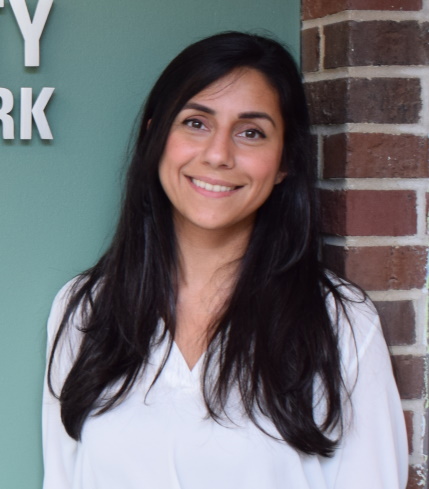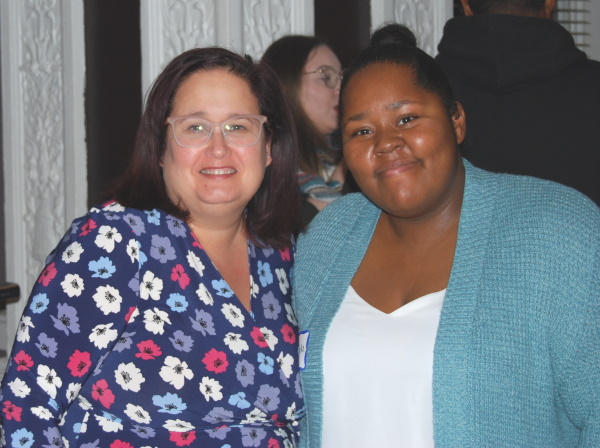Redefining justice: Wayne State School of Social Work students explore Holistic Defense with course series
Social workers are often called upon to assist in criminal cases, and for some, the legal system may be uncharted territory. Thanks to Athena Kheibari, assistant professor and holistic defense coordinator at Wayne State University (WSU), School of Social Work students can now learn about a new type of advocacy called “holistic defense.” Kheibari launched the Holistic Defense course series in 2020.
“Many social work students are not aware that this type of holistic defense work exists. Students are more familiar with the traditional career paths in social work, such as interpersonal practice in clinical settings or school social work,” Kheibari said.
Holistic defense, made popular in New York by the Bronx Defender’s office in 1997, employs an interdisciplinary team that considers both the individual and community needs when working with defendant who is often indigent. A 2018 study reviewed over 500,000 cases in the Bronx Criminal Court over a 10-year period, revealing the holistic defense model resulted in a 16% reduction in incarceration for clients.

Kheibari once practiced as a capital mitigation specialist in Kentucky, where the death penalty is still legal.
“I learned a lot about the challenges and injustices faced by indigent clients who were involved with the legal system. My stance against the death penalty cemented after working with clients and appreciating the complexity of their lives,” she said.
Kheibari brought her expertise to WSU in 2019, and the timing couldn’t have been better.
“I wanted to be a part of Dean Kubiak’s mission to provide this type of education and hands-on training to students. It was a perfect opportunity,” she said.
The Michigan Indigent Defense Commission, which provides state funding to support local indigent defense systems, has set up over 30 holistic defense offices, including rural areas. In October, the Commission sponsored “Innovations in Public Defense,” with the purpose of strategizing about improving access to, and the quality of, legal defense for indigent clients.
WSU Social Work Dean Sheryl Kubiak, Kheibari, and Daniel Ellman, assistant professor of law, participated in the meeting, along with public defenders and criminal legal advocates across the state.
“Holistic defense is an opportunity for social workers to work preventatively to keep individuals out of the criminal/legal system when safety is not a concern. Social workers who partner with attorneys to evaluate mitigating circumstances and find appropriate services and treatment, do our communities - not to mention their families - a great service. This is a growing and exciting field for social workers interested in criminal/legal reform,” Kubiak said.
The Holistic Defense course series at Wayne State is the only one of its kind in the state, and among a handful in the nation.
“I want social work students to learn about non-traditional ways they can advocate for indigent clients and create change. Our program brings law and social work students together to gain hands-on experience,” Kheibari said.
A key component of the program is the requirement of 225 field education hours for two semesters. Current placements include the Detroit Justice Center, the Federal Community Defender Office, the Neighborhood Defender Service of Detroit, and the State Appellate Defender Office.
“While classroom learning is necessary, coursework alone can’t prepare students for all the ways that the system impacts indigent clients and the various strategies that legal professionals and social workers must use to serve clients.”

Graduate social work students like Tamara McQueen have benefitted from the experience.
“This course series taught me about the holistic defense model of the criminal justice system and the comprehensive work social workers do to empower change in this community,” McQueen said.
Fellow student Tomiko Gumbleton hopes to become a mitigation specialist one day.
“The course prepared me for the work I would do at my field placement this fall. I understood legal terms and criminal justice procedures and felt comfortable conducting my first interviews with clients and working with law students at my field placement. The knowledge and real-world scenarios from these classes prepared me to be successful,” Gumbleton said.
For Kheibari, helping indigent clients involves more than just representation and court appearances.
“Practicing holistic defense is incredibly important and meaningful work. Those who practice it do it because they have heart and compassion for all human beings—regardless of the mistakes they may have made. It is challenging work, both professionally and personally, but fighting for human rights is worth it.”
The Holistic Defense graduate course series involves a total of two social work courses, one law course, and the successful completion of an assigned field placement. Social work students are also encouraged to take related electives and must maintain an overall GPA of 3.0 throughout the classes and field experience. Learn more here.
Author: Laura Hipshire laurahipshire@wayne.edu